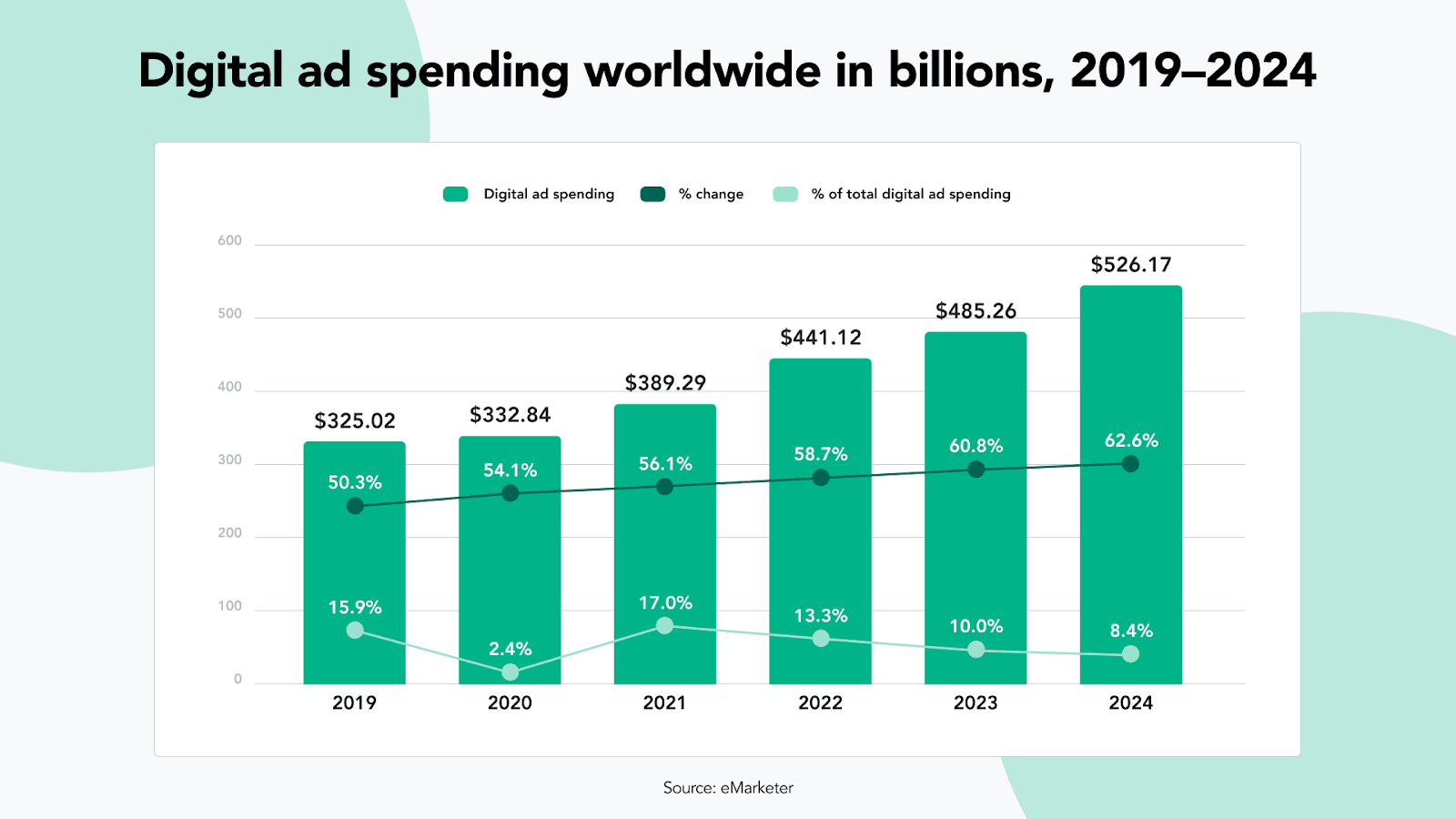
In today’s digital age, having a killer content marketing strategy is no longer a luxury; it’s a necessity. With the ever-increasing competition for online visibility, businesses need to find innovative ways to stand out and engage their target audience. To succeed in the world of content marketing, you need more than just good writing – you need a strategic approach.
In this ultimate guide, we will walk you through the essential elements of a killer content marketing strategy. From creating buyer personas to crafting compelling content, we’ll show you how to grab your audience’s attention and keep them hooked. We’ll explore the power of storytelling, the art of SEO optimization, and the importance of tracking and analyzing your results.
Whether you’re a seasoned marketer looking to take your content strategy to the next level or a beginner trying to understand the basics, this guide has got you covered. So, get ready to unleash the full potential of your content marketing efforts and elevate your brand’s online presence. It’s time to turn your content into a powerful marketing tool that drives traffic, captures leads, and generates conversions.
What is Content Marketing?
Content marketing is a strategic approach to creating and distributing valuable, relevant, and consistent content to attract and retain a clearly defined audience. It goes beyond traditional advertising by providing value to the audience, building trust, and establishing authority. The goal of content marketing is to ultimately drive profitable customer action.
To succeed in content marketing, you need to understand your audience and their needs. This requires research and the creation of buyer personas, which are fictional representations of your ideal customers. By understanding their demographics, preferences, pain points, and goals, you can tailor your content to resonate with them and provide solutions to their problems.

The Importance of a Content Marketing Strategy
Having a well-defined content marketing strategy is crucial for several reasons. Firstly, it helps you set clear goals and objectives for your content marketing efforts. Without a strategy, you may end up creating content aimlessly, without a clear direction or purpose. A strategy helps you align your content with your overall business goals and ensures that every piece of content serves a specific purpose.
Secondly, a content marketing strategy helps you stand out from the competition. With so much content being created and shared online, it’s essential to differentiate yourself and provide unique value to your audience. A strategy allows you to identify your unique selling proposition and create content that sets you apart.
Lastly, a content marketing strategy enables you to measure and analyze the success of your efforts. By tracking key metrics such as website traffic, engagement, leads generated, and conversions, you can understand what’s working and what’s not. This data-driven approach allows you to optimize your content marketing strategy over time and drive better results.
Understanding Your Target Audience and Their Needs
To create content that resonates with your target audience, you need to understand who they are and what they want. This requires conducting thorough research and creating detailed buyer personas. A buyer persona is a semi-fictional representation of your ideal customer, based on market research and real data about your existing customers.
Start by gathering demographic information such as age, gender, location, and occupation. Then dig deeper into their psychographic information – their interests, preferences, pain points, and goals. You can gather this information through surveys, interviews, and social media listening.
Once you have a clear understanding of your target audience, you can create content that addresses their specific needs and challenges. This will help you establish a connection with them, build trust, and position yourself as an authority in your industry.
Conducting Keyword Research for Content Ideas
Keyword research is an essential part of any content marketing strategy. It helps you understand what topics and keywords your target audience is searching for, allowing you to create content that aligns with their interests and needs. By targeting relevant keywords, you can improve your search engine rankings and attract organic traffic to your website.
Start by brainstorming a list of topics that are relevant to your industry and audience. Then use keyword research tools like Google Keyword Planner, SEMrush, or Ahrefs to identify the search volume and competition for those keywords. Look for keywords with high search volume and low competition to maximize your chances of ranking well in search engine results.
Once you have a list of target keywords, incorporate them naturally into your content. Avoid keyword stuffing, as it can harm your rankings and make your content less engaging. Instead, focus on creating high-quality, informative, and engaging content that provides value to your audience.

Creating High-Quality and Engaging Content
Creating high-quality and engaging content is the heart of any content marketing strategy. Your content should provide value to your audience, answer their questions, and solve their problems. It should be well-researched, well-written, and optimized for readability.
Start by brainstorming content ideas that align with your audience’s interests and needs. Look for gaps in the market and create content that fills those gaps. Use a mix of formats such as blog posts, videos, infographics, and podcasts to keep your content diverse and engaging.
When creating your content, focus on storytelling. Storytelling is a powerful tool that allows you to connect with your audience on an emotional level and make your content more memorable. Use storytelling techniques such as personal anecdotes, case studies, and customer success stories to engage your audience and make your content relatable.
Optimizing Your Content for Search Engines
Optimizing your content for search engines is crucial for improving your visibility and driving organic traffic to your website. This involves incorporating relevant keywords into your content, optimizing your meta tags, and building high-quality backlinks.
Start by optimizing your on-page elements such as your title tags, meta descriptions, and header tags. Use keyword-rich titles and descriptions that accurately describe your content and entice users to click. Use header tags (H1, H2, H3) to structure your content and make it easier for search engines to understand.
Next, focus on building high-quality backlinks to your content. Backlinks are links from other websites that point to your content, signaling to search engines that your content is valuable and trustworthy. Reach out to influencers, industry experts, and relevant websites to request backlinks or guest posting opportunities.
Remember, SEO is an ongoing process. Regularly monitor your rankings, analyze your competitors, and make adjustments to your content and optimization strategies as needed.
Promoting Your Content Through Various Channels
Creating great content is only half the battle; you also need to promote it effectively to reach your target audience. There are various channels and tactics you can use to promote your content and drive traffic to your website.
Start by sharing your content on social media platforms such as Facebook, Twitter, LinkedIn, and Instagram. Tailor your messaging and format to each platform to maximize engagement. Use eye-catching visuals, compelling headlines, and relevant hashtags to attract attention and encourage shares.
Additionally, consider reaching out to industry influencers and thought leaders to promote your content. Building relationships with influencers can help you tap into their audience and expand your reach. Seek opportunities for guest blogging, podcast interviews, or collaborations to leverage their authority and credibility.
Lastly, consider investing in paid advertising to amplify your content’s reach. Platforms like Google Ads and Facebook Ads allow you to target specific demographics and interests, ensuring your content reaches the right audience.

Measuring and Analyzing the Success of Your Content Marketing Efforts
To continuously improve your content marketing strategy, you need to measure and analyze the success of your efforts. This involves tracking key metrics, analyzing data, and making data-driven decisions.
Start by setting up analytics tools like Google Analytics to track website traffic, engagement, and conversions. Monitor metrics such as page views, time on page, bounce rate, and conversion rate to understand how your content is performing.
Next, analyze the data to identify trends, patterns, and areas for improvement. Pay attention to which content pieces are generating the most traffic, engagement, and conversions. Identify the topics, formats, and promotion channels that are most effective for your audience.
Use this data to refine your content marketing strategy over time. Experiment with different content formats, topics, and promotion tactics to see what works best for your audience. Test and measure the results, and make adjustments based on the data.
Content Marketing Tools and Resources
To streamline your content marketing efforts, there are various tools and resources available to help you create, optimize, and promote your content. Here are some essential tools to consider:
1. Content management systems (CMS) like WordPress, Drupal, or Joomla for easy content creation and publishing.
2. Keyword research tools like Google Keyword Planner, SEMrush, or Ahrefs for identifying relevant keywords.
3. SEO tools like Moz, Yoast, or SEMrush for optimizing your content for search engines.
4. Social media management tools like Hootsuite, Buffer, or Sprout Social for scheduling and managing your social media posts.
5. Email marketing tools like Mailchimp, Constant Contact, or ConvertKit for capturing leads and nurturing your audience.
6. Analytics tools like Google Analytics or Adobe Analytics for tracking and analyzing your website’s performance.
Explore these tools and resources to find the ones that best suit your needs and budget. Remember, the right tools can help you save time, streamline your processes, and drive better results.
Conclusion: Taking Your Content Marketing Strategy to the Next Level
Creating a killer content marketing strategy requires careful planning, research, and execution. It’s not just about creating great content; it’s about creating content that resonates with your audience, drives organic traffic, and generates conversions.
By understanding your target audience and their needs, conducting thorough keyword research, creating high-quality and engaging content, optimizing for search engines, and promoting your content effectively, you can take your content marketing strategy to the next level.
Remember to measure and analyze the success of your efforts, make data-driven decisions, and continuously refine your strategy based on the results. With time, dedication, and the right tools, you can unleash the full potential of your content marketing efforts and elevate your brand’s online presence.
So, what are you waiting for? It’s time to start crafting a killer content marketing strategy that will help you stand out, engage your audience, and drive results. Get ready to make your mark in the digital world!




